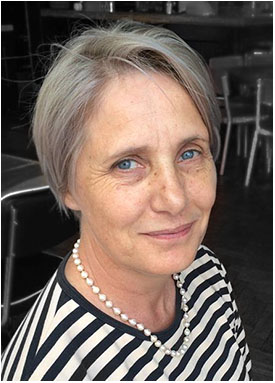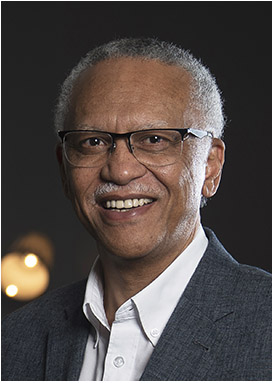Each year Stellenbosch University honours a select few with a Chancellor's Award in recognition of sustained excellence. It is limited to 15 achievers in the fields of learning and teaching, research and social impact.
This year, Prof Jimmy Volmink and Prof Mariana Kruger from the Faculty of Medicine and Health Sciences (FMHS) will be among those honoured during the university's graduation ceremony on December 15.
“I am greatly honoured for the recognition by Stellenbosch University, which has been completely unexpected," says Kruger, the executive head of the Department of Paediatrics and Child Health and the clinical unit head of paediatric oncology at Tygerberg Hospital.
“In partnership with the Western Cape Health Department, Stellenbosch University has created a very enabling environment that allows us as staff to broaden our horizons and expand our knowledge base."
The Department of Paediatrics and Child Health is a large academic department, and includes the Desmond Tutu Tuberculosis Centre (DTTC) and the Family Centre for Research with Ubuntu (FAMCRU).
“All these work environments have an excellent research track record," says Kruger, who joined the FMHS in 2009. “My focus has been to align the Department with the strategic vision of the FMHS, Stellenbosch University and Tygerberg Hospital."
Her previous 25 years at the University of Pretoria and Gauteng Health Department no doubt helped to provide her with valuable experience for this role. She has been an innovative leader at Stellenbosch University in several areas over the last decade.
The Chancellor's Award recognises her contribution in management, learning and teaching, research, and social impact and service – a truly deserving recipient of the prestigious annual award.
Kruger, a paediatric oncologist and ethicist, is especially proud of the fact that the Department has increased the number of completed PhDs and its internationalisation through the active recruitment of postgraduate students from the rest of Africa.
Another achievement that she singles out is that the postgraduate curriculum for specialist paediatricians has been transformed in order to address the healthcare needs of children in South Africa.
“One major achievement is to have been part of the International Society of Paediatric Oncology board," Kruger adds, “driving the process to ensure that the World Health Organisation adopts childhood cancer as a priority, with the aim of curing 60 percent of the world's children by 2030."
She emphasises the importance of the contribution of staff to the various successes of the Department: “I have been fortunate to deal with very talented staff, and this award is in recognition of the great team spirit in the Department."
To further enhance staff skills, Kruger has initiated a development programme which strives to ensure that all staff benefit from opportunities to improve their clinical, teaching, research and managerial skills.
More generally, Kruger has made a significant contribution to the regulatory framework which governs how health science professionals are educated, trained and registered in South Africa.
From 2010 to 2015, she served on various Health Professions Council of South Africa (HPCSA) committees, including as board member, chair of the Committee for Foreign Registration and member of the HPCSA Education and Registration Committee. She was also a South African Medical Research Council (SAMRC) ethics review committee member from 2002 to 2006, and was recently invited to serve on the Council's newly established Bioethics Advisory Panel.
In addition, international collaboration has increased as well under Kruger's leadership. She created a formal paediatric oncology twinning programme with mission hospitals in Cameroon and the FMHS now offers a joint PhD degree with the Free University of Amsterdam.
Over and above these initiatives, Kruger still maintains a high level of productivity as a researcher. She has published widely, and been principal investigator on several paediatric clinical trials and co-investigator on others.
“To date I have spent the best part of my career at Stellenbosch University," says Kruger, “and hope to continue to contribute to the environment where children with cancer can be cured."
Stellenbosch University previously acknowledged her overall contribution with Rector's Awards for General Performance in 2012 and 2013. The Chancellor's Award is further recognition of her exceptional service.
As her nomination declares: “Her visionary, energetic and innovative leadership has resulted in sustained excellence and has created an enabling environment for the university and Faculty to be more responsive in strengthening scholarship, research and innovation capacity to combat the health challenges of our time and place."
Volmink, the Dean of the FMHS, was nominated for a Chancellor's Award by the Faculty's management team – a tribute to the high esteem in which his colleagues regard both his leadership and his academic achievements.
Their motivation refers to his “sustained contribution to the vision of the University, his leadership role both in the Faculty, University as well as nationally, his impressive academic outputs and his highly regarded international stature".
Volmink has carved out a distinguished career in the field of epidemiology over more than three decades. While working as a general practitioner and district surgeon in Cape Town, he obtained a Masters in Public Health in epidemiology from Harvard University in 1988.
From 1990 to 1993, he was a Specialist Scientist at the SAMRC's Centre for Epidemiological Research in Southern Africa. He continued his studies in epidemiology afterwards and obtained a DPhil degree from Oxford University in 1996.
Today Volmink is Professor in the Department of Global Health at Stellenbosch University, with over 30 years of teaching experience. He played a leading role in developing an MSc in Clinical Epidemiology at the university – one of its flagship Masters programmes, with more than 100 graduates so far.
In addition, Volmink has built up considerable expertise in evidence-based healthcare, a relatively new global movement in medicine which advances the premise that decision-making in healthcare must be based on reliable evidence from clinical research.
At the invitation of the SAMRC, he established the SA Cochrane Centre (now Cochrane SA) in 1997 where he served as Founding Director and Chief Specialist Scientist. This development marked the beginning of the formal promotion of evidence-based medicine (EBM) in South Africa.
Volmink is now regarded as a world leader in EBM, and received the Leverhulme Medal from the Liverpool School of Tropical Medicine in 2015 for his contribution to evidence-based healthcare.
He has also received a Recognition Award for his contributions to Evidence-based Health Care in Africa from the SAMRC, and in February 2021 Volmink will receive an honorary doctorate from KU Leuven, Belgium in recognition of his work to promote human dignity and his contribution to science and practice to improve health and well-being.
His nomination for the Chancellor's Award points out that his work in evidence-based healthcare, and his development of research capacity in low to middle-income countries in particular, “continues to have a significant impact on the lives of many people".
Volmink's expertise in other areas has been recognised as well. He is a current or past member of committees and advisory boards of a number of international organisations, including the World Health Organisation (WHO) and the United Nations Development Programme/World Bank/WHO Special Program for Research and Training in Tropical Diseases.
Yet, despite his involvement in a wide range of activities, he still makes time for teaching and research at Stellenbosch University. As his nomination for the Chancellor's Award notes: “Professor Volmink has mentored a large number of young researchers, either formally or informally, served as external examiner and examined theses for universities in South Africa and internationally." He is currently supervising two PhD candidates.
And, even after he became Dean in 2011, Volmink has continued to publish widely. In total, he has authored over 200 peer reviewed articles, most notably in epidemiology and evidence-based healthcare, as well as 24 book chapters, nine technical reports and numerous editorials and commentaries.
His impact on research stretches far beyond his own research. After he was appointed Deputy Dean (Research) at Stellenbosch University in 2006, he set up research development and support structures which ensured that income from large grants grew from less than R20 million in 2005 to about R157 million in 2010. This has continued to grow and currently external research funding exceeds R500 million.
“Professor Volmink, in his term as Dean, continues to lead the faculty through a process to improve excellence in research, innovative teaching and an inclusive culture for staff and students," his nomination observes.
“We believe that, as the epitome of an excellent academic, and as a person who lives the values of Stellenbosch University, he would be a worthy recipient of the prestigious Chancellor's Award."
Volmink, an elected member of the Academy of Science of South Africa and an elected Fellow of the Royal College of Physicians of Edinburgh, pays tribute to his colleagues for their contribution to his successful tenure as Dean. “I am deeply grateful for this honour, but at the same time mindful that excellence is a team effort," he comments.
“Without the support of colleagues, and the commitment of my management team in particular, none of the achievements for which I am being recognised would have been possible. I am truly blessed to be working with such exceptional people."
Caption: Profs Mariana Kruger and Jimmy Volmink. Photo by Stefan Els

